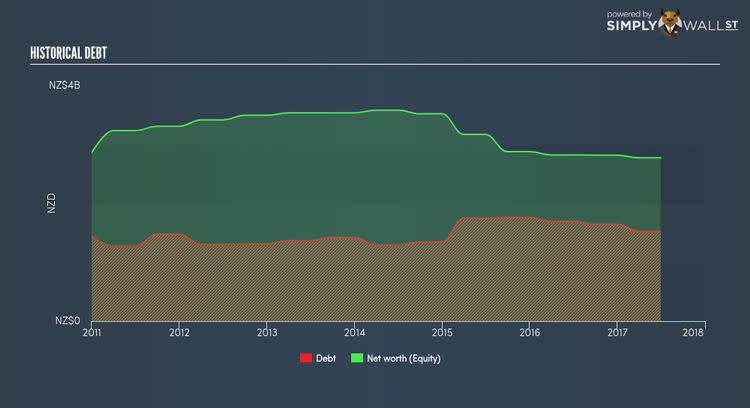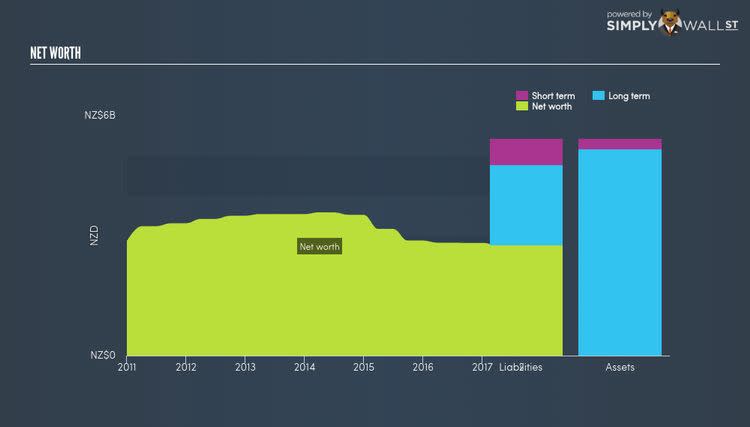How Financially Strong Is Contact Energy Limited (NZSE:CEN)?

Small-caps and large-caps are wildly popular among investors; however, mid-cap stocks, such as Contact Energy Limited (NZSE:CEN) with a market-capitalization of NZD NZ$3.98B, rarely draw their attention and few analysts cover them. However, generally ignored mid-caps have historically delivered better risk adjusted returns than both of those groups, primarily due to seasoned executives running a lean corporate structure. I will take you through a few basic checks to assess the financial health of companies with no debt. View our latest analysis for Contact Energy
Does CEN face the risk of succumbing to its debt-load?
Debt-to-equity ratio tells us how much of the asset debtors could claim if the company went out of business. For CEN, the debt-to-equity ratio is 55.03%, which indicates that its debt can cause trouble for the company in a downturn but it is still at a manageable level. While debt-to-equity ratio has several factors at play, an easier way to check whether CEN’s leverage is at a sustainable level is to check its ability to service the debt. A company generating earnings at least three times its interest payments is considered financially sound. CEN’s interest on debt is sufficiently covered by earnings as it sits at around 3.15x. Debtors may be willing to loan the company more money, giving CEN ample headroom to grow its debt facilities.
Can CEN meet its short-term obligations with the cash in hand?
Another important aspect of financial health is liquidity: the company’s ability to meet short-term obligations, including payments to suppliers and employees. If an adverse event occurs, the company may be forced to pay these immediate expenses with its liquid assets. We need to assess CEN’s cash and other liquid assets against its upcoming expenses. Our analysis shows that CEN is unable to meet all of its upcoming commitments with its cash and other short-term assets. While this is not abnormal for companies, as their cash is better invested in the business or returned to investors than lying around, it does bring about some concerns should any unfavourable circumstances arise.
Next Steps:
Are you a shareholder? Although CEN’s debt level is towards the higher end of the spectrum, investors shouldn’t panic since its cash flow coverage seems adequate to meet obligations which means its debt is being efficiently utilised. Since CEN’s financial position may change over time, You should continue exploring market expectations for CEN’s future growth on our free analysis platform.
Are you a potential investor? Although investors should analyse the serviceability of debt, it shouldn’t be viewed in isolation of other factors. Ultimately, debt is often used to fund or accelerate new projects that are expected to improve a company’s growth trajectory in the longer term. CEN’s Return on Capital Employed (ROCE) in order to see management’s track record at deploying funds in high-returning projects.
To help readers see pass the short term volatility of the financial market, we aim to bring you a long-term focused research analysis purely driven by fundamental data. Note that our analysis does not factor in the latest price sensitive company announcements.
The author is an independent contributor and at the time of publication had no position in the stocks mentioned.


